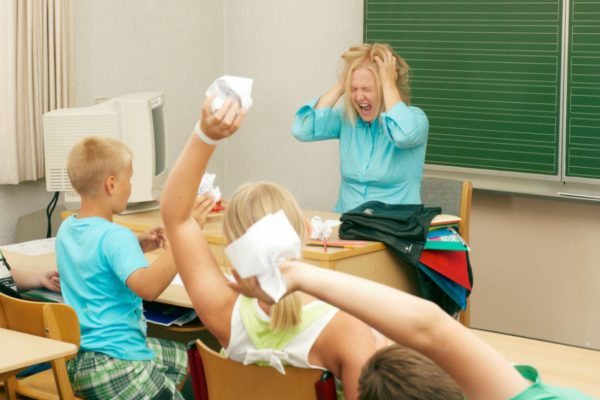The optimism of graduation season was mixed this year with the tragedy of another school shooting, this time in Santa Fe, Texas. Among the 10 victims were two teachers. While we mourn the loss of our nation’s youths to school shootings, we should also wonder how the prevalence of gun violence will impact college graduates’ decision to enter the teaching profession.
Teaching is one of the largest and most important professions in the United States. Currently, there are more than 3 million teachers in the U.S., and this number is not expected to change in the near future. Teaching is not a profession we can outsource to other countries, and we cannot replace educators with technology.
Yet, according to the National Center for Educational Statistics, the number of degrees awarded in education dropped by 10 percent between 2009-2010 and 2014-2015. A survey conducted by The Chronicle of Education found only 4.2 percent of first-year college students planned to major in education, a low point going back decades.
Salaries are usually listed as one culprit for teacher recruiting. As evidence, teacher strikes for more pay were recently settled in West Virginia, Oklahoma and Arizona, and more strikes may be coming in other states. Public debate about teacher strikes revolves mostly around wages — as it should, because teachers are underpaid compared with other professions requiring similar levels of training, and they continue to fall behind. According to the Economic Policy Institute, in 1996 teachers’ pay was off by 1.8 percent compared with professions that require similar levels of education (among other factors), but this gap grew to 17 percent in 2015.
Teachers in Texas are no exception. Education Week produces an assessment of each state’s performance in public education annually, and in 2018 Texas was awarded a D — for its financing of schools. The National Education Association reported Texas was ranked 29th among states in average teacher pay for 2016-2017.
But we are not only stingy about the paychecks we give to teachers. We also skimp on the resources we provide so they can do their jobs. One example is that most teachers spend out of pocket to pay for materials needed in their classrooms, often amounting to hundreds of dollars.
There is also the matter of respect for the occupation. The accountability measures legislated in the United States, beginning with No Child Left Behind legislation, have stripped teachers of much of their professional autonomy in teaching their students as they deem best. Standardized testing is expensive, but has it been worth the cost in terms of improved student learning and lowered teacher morale? Giving teachers more professional autonomy over their instructional duties would cost little and is reliably linked to their job satisfaction. Happy teachers are less likely to leave the field, and they spare school districts the expense of finding replacements.
It is certainly worth asking whether gun violence will soon emerge as another occupational barrier for teacher recruitment. As a professor of educational psychology, I study the factors that lead to job stress in teachers. Although we do not have a great deal of data on the impact of school shootings, examining surveys of teacher workforce conditions with colleagues at the University of North Carolina at Charlotte, we found a link between teachers most at risk for stress and the incidence of violence in their classrooms.
There are many reasons we need to take action on school shootings. It is simply unthinkable that we would allow such violence against our nation’s youths to continue. We need to make schools safer for students. We also need hundreds of thousands of adults to choose to staff our schools every year. If we do not act to curb school violence soon, we may find even fewer college graduates willing to choose the profession of teaching.
Christopher J. McCarthy is a professor and the associate chair of the Department of Educational Psychology at The University of Texas at Austin.
A verion of this op-ed appeared in The Oklahoman, Fort Worth Star Telegram, Austin American Statesman, and the San Antonio Express News.
To view more op-eds from Texas Perspectives, click here.
Like us on Facebook.




